Description
Editorial
Social Charity
Vol. 1, No. 2 July 1999
Promoting inter-religion understanding among the different religious communities of this world is the main objective of this issue. To achieve this noble objective, five important aspects like human values, social charity, religious positivity, art and religion and religious humanism have already been discussed through over previous issue. Here we shall try to clarify the theoretical concept of sin and it practical implication in global religious perspective. The problem of sin and virtue has been discussed throughout the ages by philosophers and religious thinkers of both the East and the West and many solutions have been offered.
The nature of sin has been divided into three categories: metaphysical sin, physical sin and moral sin. Metaphysical sin consists in mere imperfection, physical sin consists in suffering and moral sin is an evil so great only because it is a source of physical sin existing in man. It denotes both moral wrong doings such as lying, cheating, stealing, torturing and murdering and character defects, like victim of five vices, deceit, cruelty, etc.
Sin is, thus so interwoven in human life that men can well foresee their daily weaknesses and explore a whole range of feelings: awareness of sin, guilt, anguish, fear, repentance, longing for pardon and hope of purification. Underlying the complexities of the human heart and mind, there are always the need for justification, the protestation of innocence and ignorance, the humble recognition of a constitutive weakness and a sense of solidarity with other Men. Man is asking for forgiveness because to do so, he belongs to his existential condition. The same conception of sin is implicit in the view of inherited sin or sin which comes from contagion. Sin can be obtained not merely from the father, but from the mother and other close kindred. Even, the sins of other men may pass over to a guiltless man, and in this category perhaps, must be reckoned the mysterious sins caused by the gods which appear in the Yajurveda. It is legitimate to suppose that the actual pollution of disease (sin) present in his body or mind can be removed by a gradual process of moral development.
Sin may be defined as all conduct which by omission or by commission, in overt act or inner meaning, is offensive to the supra-human Powers. To modern ideas, the decisive criterion of sin is the consciousness of wrong-doing. An act may be foolish and mistaken, disastrous in its results to the doer and to others. If the doer acted with right intention and according to his best judgement, then we may characterise him or his act in the terms ‘sin’ and ‘sinner’. But from the earlier point of view, the act alone is regarded. The sinner is he who has incurred a debt. His sinfulness is not a matter of inner meaning, but an objective relation. Given the deed, the doer is a sinner, and a sinner he remains until the sin is expiated or condoned. From this point of view, it becomes even irrelevant to inquire whether the sin was incurred voluntarily or involuntarily, knowingly or unknowingly, with the best intentions or the worst.
We must bear in mind that the idea of sin in its earliest form is neither moral nor spiritual. Sin is simply that of which the deity or deities disapprove. It is often said that sin, at a primitive stage, is merely the violation of national or tribal custom. In the earliest parts of the Old Testament, “sin is almost invariably presented to us as nothing more than disobedience to the statutes regulating religious, social and civil life in Israel, and a violation of the good customs in vogue among this people”. The Old Testament does not develop any formal doctrine of the origin of sin, but explains sins variously according to the circumstances of individual cases. Human nature is such that man sins through the influence of different motives and causes—the pride engendered by prosperity, the distress arising from poverty, indolence, lust, persuasion by men, etc. Sometimes, God Himself is spoken of as causing men to sin. Probably this is a rhetorical way of saying that God has ordained that indulgence in sin should make men more prone to sin. Whether there is any real difference between the two forms of expression may be doubtful.
The Christian doctrine of sin is a state or power in the developed moral consciousness of man. Man’s relation to God is construed in essentially legal terms. The prevailing temper is fear of utter condemnation. Though sin may be inherited, moral freedom is intact, and man can choose whether he will or will not live righteously. The heart, not the flesh, is the seat of the inborn evil impulse (yezer hara). But at least the flesh makes sin intelligible and as Holtzmann puts it, ‘there is no clear agreement whether the flesh represents a power ethically indifferent or one that somehow leads to sin.’ Each sin is an individual act, which can be weighed and numbered. Much responsibility for sin belongs to evil spirits which tempt men even to apostasy from God. Sin is never put in relation to the love of God. God is creditor and man is debtor.
According to Christian concept, the first man, Adam, committed a sin in Paradise, called original sin and the blame has continued to attach to succeeding generations of the entire human race, so that all human beings are held to be born sinners. However Islamic concept of sin differs considerably from Christian view. It is a major tenet of Islam that man has been created and sent to the world for the purpose of being tested. Owing to the exigencies of man’s being on trial, he has been granted freedom in both word and deed. This is necessary to ensure that his moral worth is reliably evaluated. Man is, therefore, at liberty to lead his life as he wills.
The Sikhs firmly hold the view that every sinner has a future, if only the path indicated in the GurubÊni is properly followed. Perfection would not be perfection if there were no imperfection. Sin is a step towards the perfection. There is nothing in evil which cannot be absorbed in good. It may be instrumental to the realisation of the God. Here, we find similarity in BahÊi’s approach. They do not believe in the existence of sin as a separate entity. It is to be viewed in the light of the absence of holiness. Man has the power to do good and to do evil; if his power for good predominates and his inclinations to do wrong are conquered, then man in truth may be called a saint. But if, on the contrary, he rejects the things of God and allows his evil passions to conquer him, then, he is no better than a mere animal.
The modern view on sin focuses its attention more on the inner aspect of the reality of sin as there is today a greater concern for what is interior to man. Mortal theology, in the past, was concerned more with the legal aspect of sin. It was rather object-centred and act-centred, but now it is becoming more and more person-centred and demanding a personal responsibility. “My sins are my unique choice”, says Leonard Foley, “and nobody else’s”. The personal ‘me’ must use mind and heart in deep awareness and decision. The individualistic concept of sin gets a broader view. Man, being linked closely with social life, can cause harm to his fellow-men through his sin. Every sin injures the person who commits it as well as other persons who are affected by it. It helps the sinner realize his responsibility also towards those innocent victims.
If the moral approach to sin in the past had a negative, prohibiting, sanctioning and punishing tone, now it is becoming more value-oriented. Efforts are being made to unearth more and more the positive implications of the Christian moral imperatives. The lack of emphasis on these has often been the cause of what we call the sins of omission imperatives. The lack of emphasis on these has often been the cause of what we call the sins of omission. Finally, the contemporary moral theologians speak about the possibility of introducing a third category of sins in the traditional division of mortal and venial sins, namely, the grave or serious sins.
The contemporary understanding of sin has unearthed several dimensions of the reality of sin hitherto unnoticed. While keeping up the traditional notions, it has tried to go into the deeper elements contained in sin. Without giving up the usual concept of sin as the violation of God’s law, it has succeeded in showing the inner infidelity of a person which prompts him to violate that law. Nay, this personal involvement is worse than external, isolated acts of sin. Efforts made in modern times to show to the people their positive duties and to inculcate in them a sense of sin in case they fail to fulfil those obligations, mark a creative approach to morality.
Contents
| Editorial | 107 | |
| 1 | The Resolve to Build a Healthy Society | 111 |
| Acharyashri Mahaprajna | ||
| 2 | Love, Charity and the Pursuit of Justice | 115 |
| John Dayal | ||
| 3 | Spiritual Value of Social Service | 118 |
| N.K. Singh | ||
| 4 | Nature and Consequences of Charity | 124 |
| W.L. Davidson | ||
| 5 | Concept of Charity in Primitive Society | 129 |
| A.H. Keane | ||
| 6 | Biblical Concept of Social Charity | 137 |
| W.A. Spooner | ||
| 7 | Philosophy of Social Charity in Thai Buddhism | 141 |
| Dr. Bachchan Kumar | ||
| 8 | Charity in Christianity | 149 |
| C.T. Dimont | ||
| 9 | The Qur’anic Concept of Charity | 158 |
| Abdul Rashid Agwan | ||
| 10 | The Concept of Charity in Islam | 167 |
| Farida Khanam | ||
| 11 | The Sikh View of Charity | 172 |
| Wazir Singh | ||
| 12 | Charity in Ancient Greek | 175 |
| W.J. Woodhouse | ||
| 13 | Hindu Concept of Social Charity | 178 |
| A.S. Geden | ||
| 14 | Jewish Concept of Social Charity | 182 |
| Morris Joseph | ||
| 15 | Roman Concept of Charity | 186 |
| J.S. Reid | ||
| 16 | Charistian Love and Charity | 189 |
| Bernard Hoose | ||
| 17 | Principle of Charity | 192 |
| Richard Feldman | ||
| 18 | Human Progress in Bahai’s Concept of Charity | 197 |
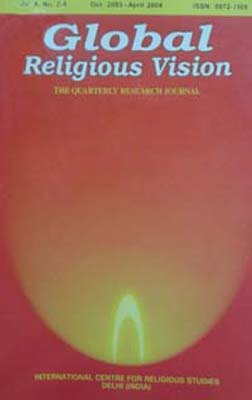




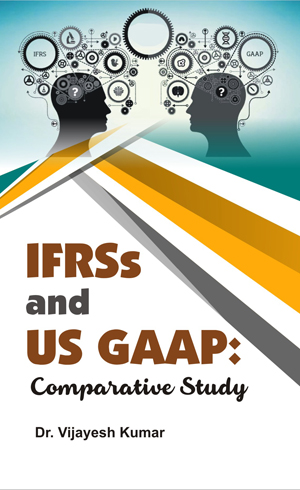

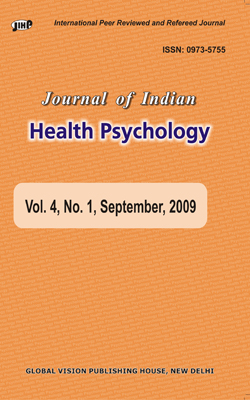
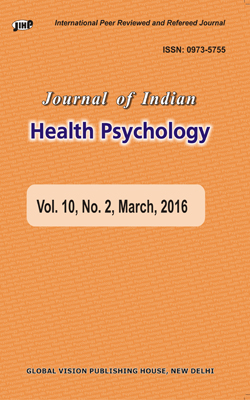
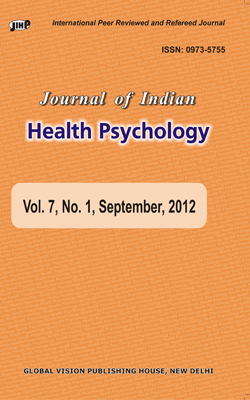
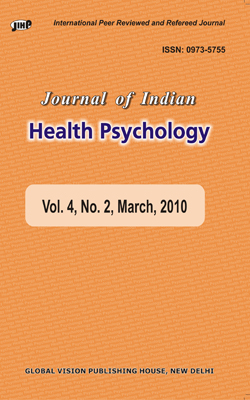
Reviews
There are no reviews yet.